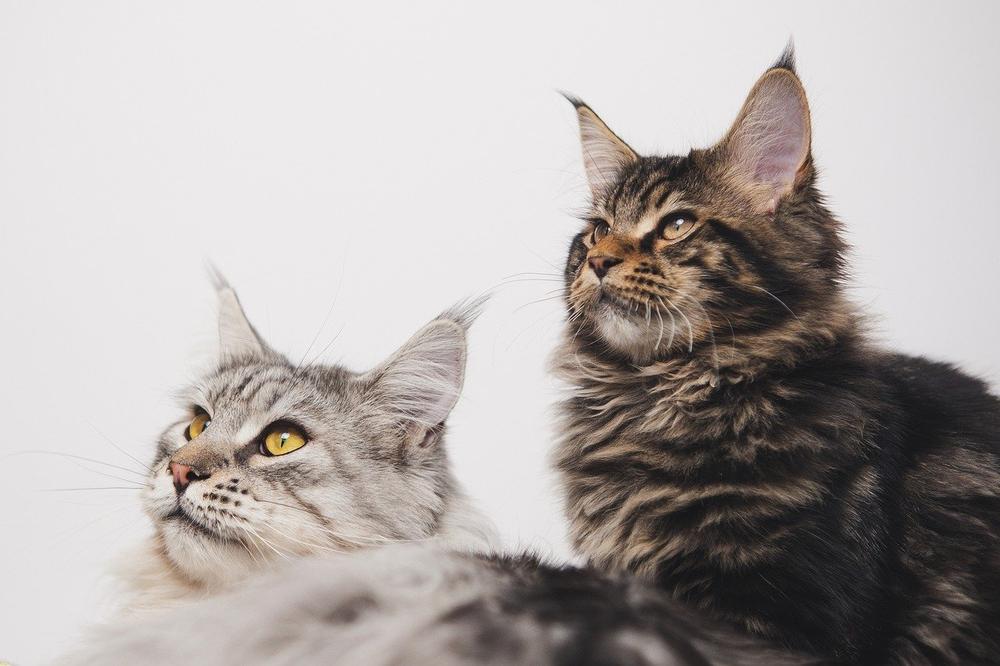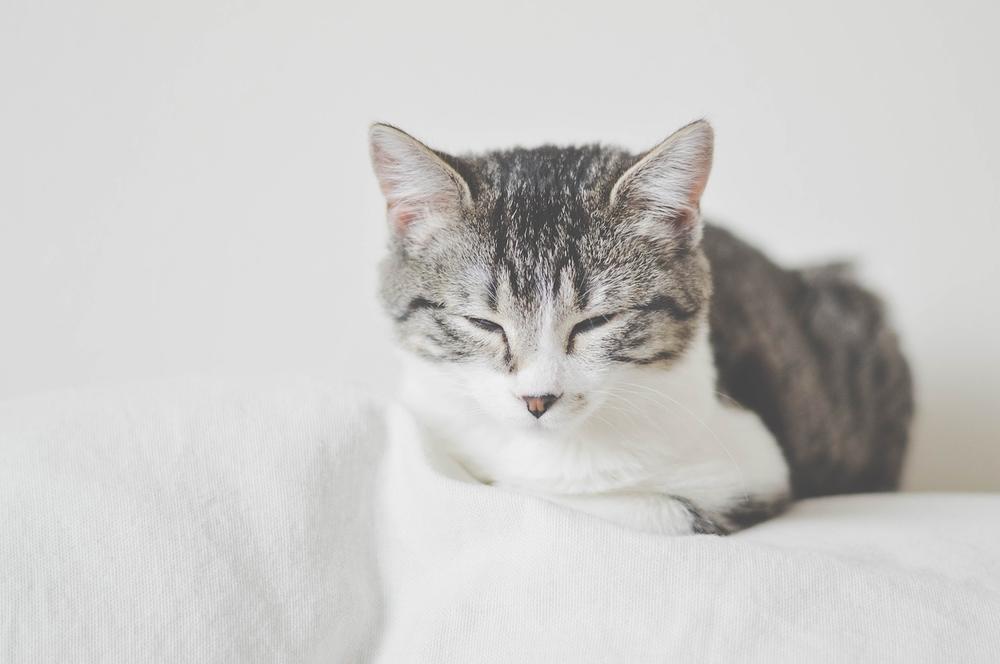Is Ficus Toxic to Cats? (All You Need to Know)

Feeling anxious about the safety of your furry feline friend?
Worried that your beloved sidekick might munch on that green ficus plant? 😮
Well, let's dive into the deep sea of knowledge and find out together, shall we?
Are Ficus Trees Poisonous to Cats?
Ficus trees, also known as Indian rubber plant, common rubber tree, common fig, fiddle-leaved fig, and fiddle-leaf fig, are toxic to cats.

This means that you need to be cautious if you have a ficus tree in your home and you also have a furry friend.
Here are some things you should know about ficus trees and their toxicity to cats:
- All parts of ficus trees are toxic to cats, including the leaves, stems, and sap. So keep your cat away from nibbling on any part of the tree.
- The toxic compounds in ficus trees can cause digestive upset, such as vomiting and diarrhea. If you notice these symptoms in your cat after being around the tree, contact your veterinarian.
- Cats may also experience skin irritation or dermatitis when they come into direct contact with ficus trees. Keep an eye out for any redness or itching on your cat's skin.
- If your cat ingests a significant amount of ficus plant material, it can lead to more severe issues like liver damage or kidney failure. Immediate veterinary attention is crucial in these cases.
- To prevent any accidents, it's best to keep ficus trees out of reach of cats or opt for non-toxic indoor plants. There are plenty of safe alternatives available!
Your cat's health and safety should always be a priority.
Main points I'll expand upon further down this article:
- Ingesting any part of the ficus tree, especially the sap, can be toxic to cats.
- Consuming ficus leaves in large amounts can be harmful.
- Ficus sap can cause allergies in cats.
- All parts of the ficus tree can potentially pose a risk to cats.
- Symptoms of ficus poisoning in cats include diarrhea, vomiting, drooling, and rashes.
- Severity of symptoms depends on the level of ingestion or contact.
- Ficus trees have class four toxicity, posing a significant risk to cats.
- Cats may react differently to toxins present in ficus trees compared to dogs.
- Carefully consider cat-safe alternatives to ficus trees.
- Take preventive measures to keep cats away from ficus plants and seek immediate veterinary help if ingestion or contact occurs.
And you should note that the leaves and sap of ficus trees have a higher concentration of toxins.
What Part of the Ficus Is Poisonous to Cats?
All parts of the ficus tree, especially the leaves and sap, contain toxic compounds that can be harmful to cats. Ingesting large quantities of ficus leaves can cause digestive issues, while the sap can trigger allergies and irritate their skin. Keep ficus trees away from cats and seek veterinary help if any unusual symptoms occur.
Let me break it down for you - every part of the ficus tree is packed with toxic compounds, but the leaves and sap are particularly potent.
So here's the deal.
If your cat gets their paws on any part of the ficus tree, especially that sticky sap, it can spell trouble. And let me tell you, this is no joke you want to mess around with.
Feasting on those ficus leaves in large quantities can lead to some serious issues for your kitty.
Believe me when I say upset tummy and vomit galore – it's not a pretty sight!
Hold up, there's more to it...

The sap oozing from those ficus trees poses a special threat to your feline companions.
It has the power to trigger allergies and irritate their precious skin. Now nobody wants to witness their beloved furball scratching like mad or breaking out into hives, right?
To ensure your kitty stays safe and sassy, keep those ficus trees far away from their reach.
And if you happen to notice any unusual symptoms after a rendezvous with a ficus tree, don't waste time - hurry to your vet pronto.
Trust the experts to provide you with top-notch advice on helping your cat bounce back.
But what exactly are these symptoms of Ficus poisoning and how long do they typically last?
Let me fill you in on all the details!
Symptoms of Ficus Poisoning
Symptoms of Ficus poisoning can range from mild to severe.
- Diarrhea: This is one of the most common symptoms of Ficus poisoning. It can vary in intensity and duration, depending on the level of ingestion or contact with the plant.
- Vomiting: Another common symptom is vomiting, which can also vary in intensity. It is usually accompanied by other gastrointestinal issues such as stomach upset.
- Mouth and gastrointestinal tract irritation: Ingesting Ficus plants can lead to irritation in the mouth and gastrointestinal tract. This can cause discomfort and further contribute to symptoms like drooling and rashes.
- Severe side effects: While most symptoms improve within 24 to 48 hours, severe side effects can occur in cases of high ingestion or contact. These can include more intense gastrointestinal issues, allergic reactions, and even respiratory distress.
You should note that cats are also susceptible to Ficus toxicity and may experience similar symptoms.
The level of toxicity can be influenced by factors such as the amount ingested, size of the animal, and potential allergies. 😷

Now, you might be wondering...
How exactly are Ficus plants toxic to cats?
What specific toxins are involved that pose such a risk?
Well, let's dive into the ongoing research and scientific efforts aiming to uncover these answers and shed light on this important topic...
Studies on Ficus Toxicity to Cats
Ongoing research is uncovering the specific toxins involved in ficus toxicity to cats.
The University of California has labeled ficus trees as class four toxicity, meaning they pose a significant risk if eaten by cats.
Don't be fooled by sellers who have dogs around ficus trees without any reported problems - that doesn't mean they are safe for cats.
Different cats can react differently to the toxins in these plants, so caution is necessary.
Researchers are working hard to understand how ficus toxicity affects cats and what causes it.
Through their dedicated efforts, we hope to better understand the dangers of ficus trees and find effective ways to prevent and treat them.
For now, you must keep ficus plants out of your cat's reach to ensure their safety.
Allow me to drive this home: Keeping ficus plants away from your curious cat is crucial. However, if you want to know how to prevent your feline friend from munching on these toxic leaves, keep reading further down the blog post.
But what if you still want to have some greenery in your home, even with the potential toxicity of ficus plants?
Don't worry, there are plenty of cat-friendly alternatives that can satisfy both your love for plants and your concern for your furry friend's safety.
Let me share with you some options that will not only beautify your space but also provide a safe environment for your cat.
What Indoor Plants Are Not Toxic to Cats?
Cat-friendly plants alternatives to ficus trees
When it comes to indoor plants that won't harm your furry friend, you have plenty of options.
For instance, spider plants (Chlorophytum comosum) are safe for cats and they'll add a touch of greenery to your home. African violets (Saintpaulia spp.) are also a beautiful choice that won't bother your feline companion.
Think about the Boston fern or bamboo palms
If you're interested in something different, consider the Boston fern (Nephrolepis exaltata) or bamboo palms (Chamaedorea seifrizii). Both these plant varieties are non-toxic to cats and can bring a vibrant energy to any space.
Safe choices for both cats and dogs
Now, if you have both cats and dogs at home and want plants that are safe for both, you could go for hens and chickens succulents from the echeveria family.
These hardy plants can handle low-light conditions and need minimal care.
Another option is the prayer plant (Maranta leuconeura), which is not only safe for cats but also adds a splash of color with its patterned leaves.
When choosing indoor plants, your cat's health and safety should always be a priority.
Avoid spiky plants like cacti, as they can cause harm if ingested.
Can Cats Eat Figs?
Figs, from the Ficus genus, can be eaten by cats, but moderation is key. However, it's best not to feed your furry friends figs or the seeds produced by Ficus trees.
How to Prevent Your Cat From Eating Ficus
If you have a ficus plant and a curious cat, you need to ensure your cat doesn't eat the leaves.
Here's what you can do to keep your feline friend safe:
- Use sprays that cats hate. These sprays have bitter stuff in them that cats don't like, so it could help stop them from approaching or chewing on ficus leaves.
- Maybe think about getting rid of the ficus plant or moving it somewhere else. If your cat is really curious or likes to go on adventures, it might be best to get rid of the ficus or keep it in a room that your cat can't get into.
- Put bonsai trees in cages. Cats find bonsai trees super interesting, but putting them in cages will make it impossible for cats to get to them.
- Make your environment cat-proof. Remove ficus plants from places your cat can reach, build barriers to keep them away, and pay extra attention if you have kittens or cat breeds known for being curious.
- Regularly check indoor plants to see if they're dangerous. Look out for any plants that could be harmful or toxic to cats and replace them with safer options.
- Keep plants out of cats' reach. Put your plants up high or in rooms that are off-limits to cats so they can't get to them.
- Give cats other things to play with. Offer distractions like wheatgrass, catnip, or catmint to divert their attention away from the ficus plant.
- Stop cats from interacting with the ficus. Find ways to discourage cats from getting too close to the ficus, like using devices that make harmless sounds or vibrations when they approach.
- Be careful even with just contact. Remember that even rubbing against the ficus can be dangerous for cats, so be watchful and limit their contact.
- Take preventive measures to make your environment safer. By following these steps, you'll create a safer space for your cat and be able to relax knowing they're protected from any risks involving ficus plants.
To truly ensure the safety of your furry friend, I want to share a valuable resource that I have provided in my blog.

If any concerns arise about the effects of boston ferns on our feline companions, you must read my article on whether Are Boston Ferns Poisonous to Cats.
This guide will address your worries and alleviate any anxiety you may have.
Take the necessary steps to safeguard your cat's health by gaining vital insights from my article.
You and your cat's well-being should always come first.
Actions to Take When Your Cat Has Consumed a Ficus
If your cat has eaten a Ficus tree or come into contact with it, you have to take immediate action.
- Call a vet immediately: Professional advice and intervention are crucial in these situations. The vet will guide you on the best course of action based on your cat's specific situation.
- Rinse out the mouth and skin: If there is any contact with the Ficus, it's important to rinse your cat's mouth and skin thoroughly. This will help minimize any potential irritation or adverse effects.
- Remove the cat from the area: Make sure to relocate your cat from the area where the Ficus tree is present. This will prevent further exposure and reduce the risk of ingestion.
- Monitor for symptoms: Keep a close eye on your cat for any signs of discomfort, vomiting, diarrhea, or other abnormal behaviors. Monitoring their condition will help determine if further medical treatment is necessary.
- Clean affected areas: If any surfaces or objects have come into contact with the Ficus, clean them with water and mild soap. This will help remove any residue that might be harmful to your cat.
This information is not veterinary advice.
You should reach out to a veterinarian or animal poison control center for professional guidance.
If you suspect toxicity, call Pet Poison Helpline.
For recommendations on bonsai gear and tools, refer to the end of this article. 😺
And that wraps up today's article.
If you wish to read more of my useful articles, I recommend you check out some of these: Is Zz Plant Toxic to Cats, Is Bromeliad Toxic to Cats, Is Acrylic Paint Toxic to Cats, Are Salt Lamps Bad for Cats, and Can Cats Eat Spider Plants
Talk soon,
-Sarah Davis